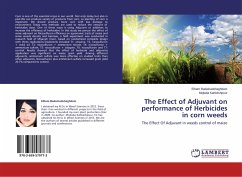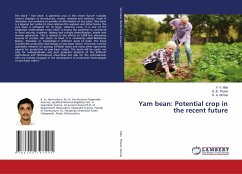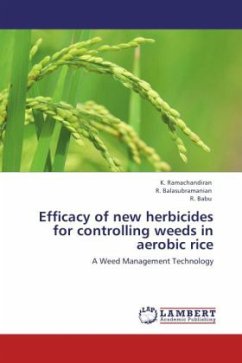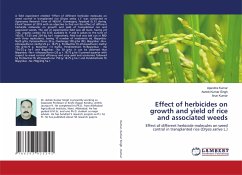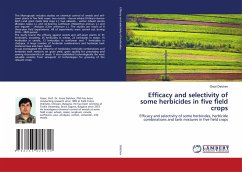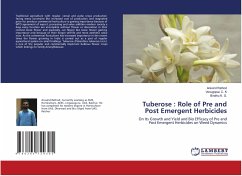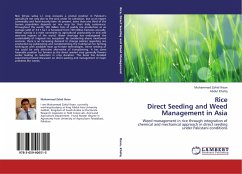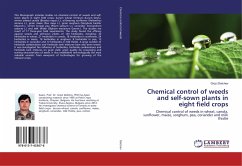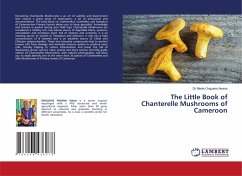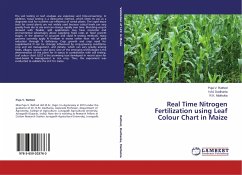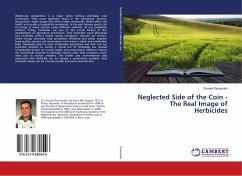
Neglected Side of the Coin - The Real Image of Herbicides
Versandkostenfrei!
Versandfertig in 6-10 Tagen
29,99 €
inkl. MwSt.

PAYBACK Punkte
15 °P sammeln!
Weed/crop competition is a major factor limiting profitable crop production. They cause significant losses in the agriculture, forestry, aquaculture, water supply and other human enterprises. Weeds affect the health and quality of people life worldwide. In the past farmers spent a lot of energy in weed control, using different methods, all not completely efficient. Today, herbicides are one of the crucial factors in the development of agriculture production. Only herbicides could effectively and profitably control weeds, saving manpower, reduced soil erosion, saved energy, increased crop produ...
Weed/crop competition is a major factor limiting profitable crop production. They cause significant losses in the agriculture, forestry, aquaculture, water supply and other human enterprises. Weeds affect the health and quality of people life worldwide. In the past farmers spent a lot of energy in weed control, using different methods, all not completely efficient. Today, herbicides are one of the crucial factors in the development of agriculture production. Only herbicides could effectively and profitably control weeds, saving manpower, reduced soil erosion, saved energy, increased crop production efficiency and yields, improve food quality, improve soil conservation and ensure a stable and predictable food. Herbicides lead to more sustainable agriculture and their use has economic benefits to society a whole. Use of herbicides has created considerable threats for human health and environment. Different factors are occasionally involved in herbicides failure under field conditions which most due to human mistakes. The health and environmental risks associated with herbicide use are largely a preventable problem. Only herbicide misuse can be a human health and environmental risks.



